In this article, I’ll use Ahrefs’ data to find some of the most searched-for SEO trends and share my opinion on whether they’re worth acting on.
SEO trends typically follow a familiar cycle that looks a bit like the Gartner hype cycle.
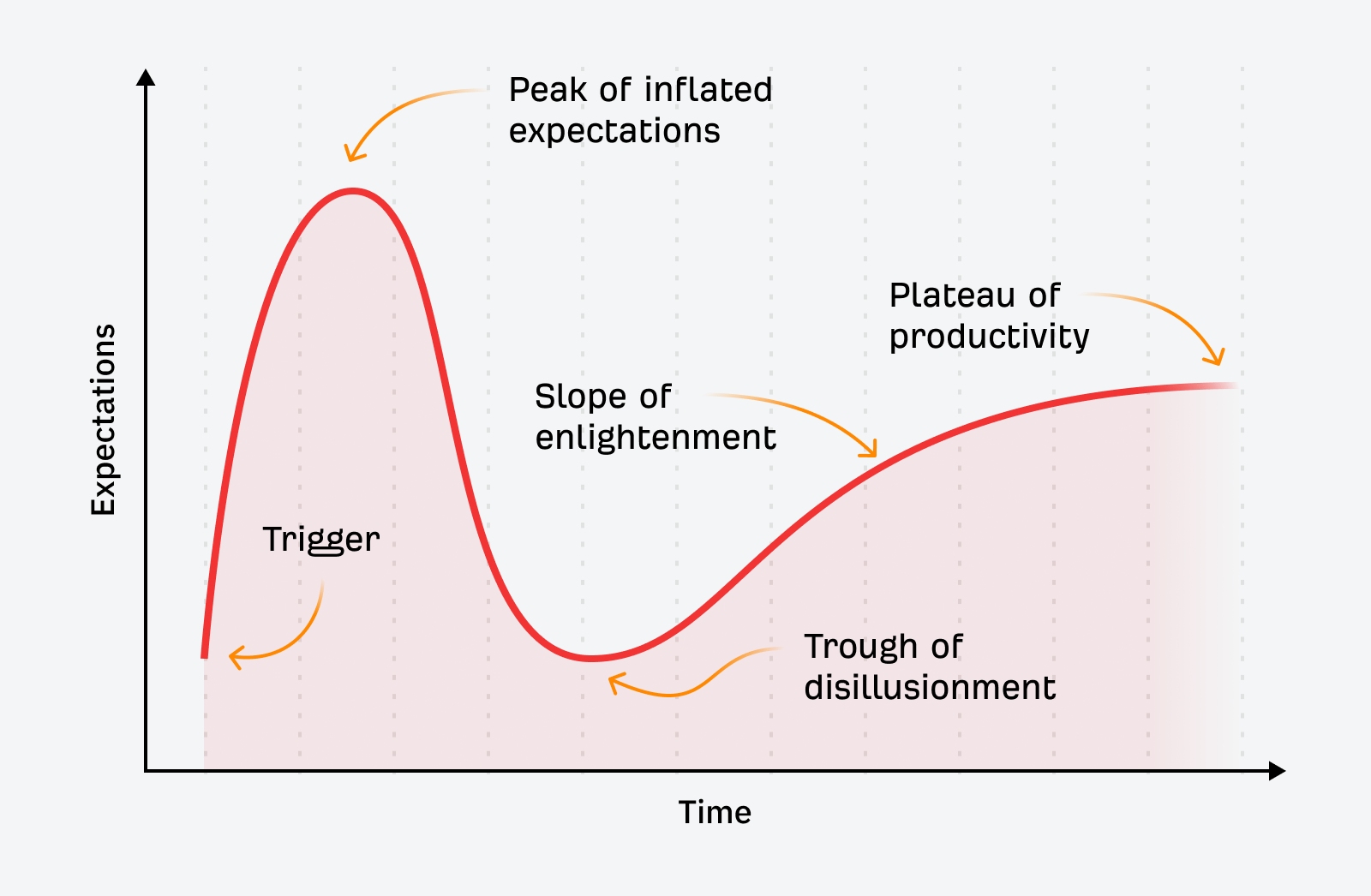
But, with so many trends to follow, the SEO trends hype cycle looks more like a sine wave, minus the slope of enlightenment or plateau of productivity.

Because—let’s face it, it’s so easy to get too caught up in the hype of the next trend, before you’ve even finished with the last one.
With so many trends to consider, it’s a good idea to sense-check them before we commit.
We can do this by plugging them into Ahrefs’ Keywords Explorer to see the forecasted organic search trend data for each keyword.
Forecasted search volume is a new feature we’ve added to Ahrefs, you can use it for any keyword, but I think it’s great for spotting upcoming trends.
If you’ve been working in SEO for a while, you’ll know that links are generally considered one of the most important Google ranking factors.
So, it may surprise you that Googler Gary Illyes recently said, “Over the years, we’ve made links less important” at a Bulgarian search conference recently.
So are links less important? And should you focus on other things rather than link building? Let’s see what the data says.
Ahrefs data shows people are still searching for link building, and the forecasted trend is stable.
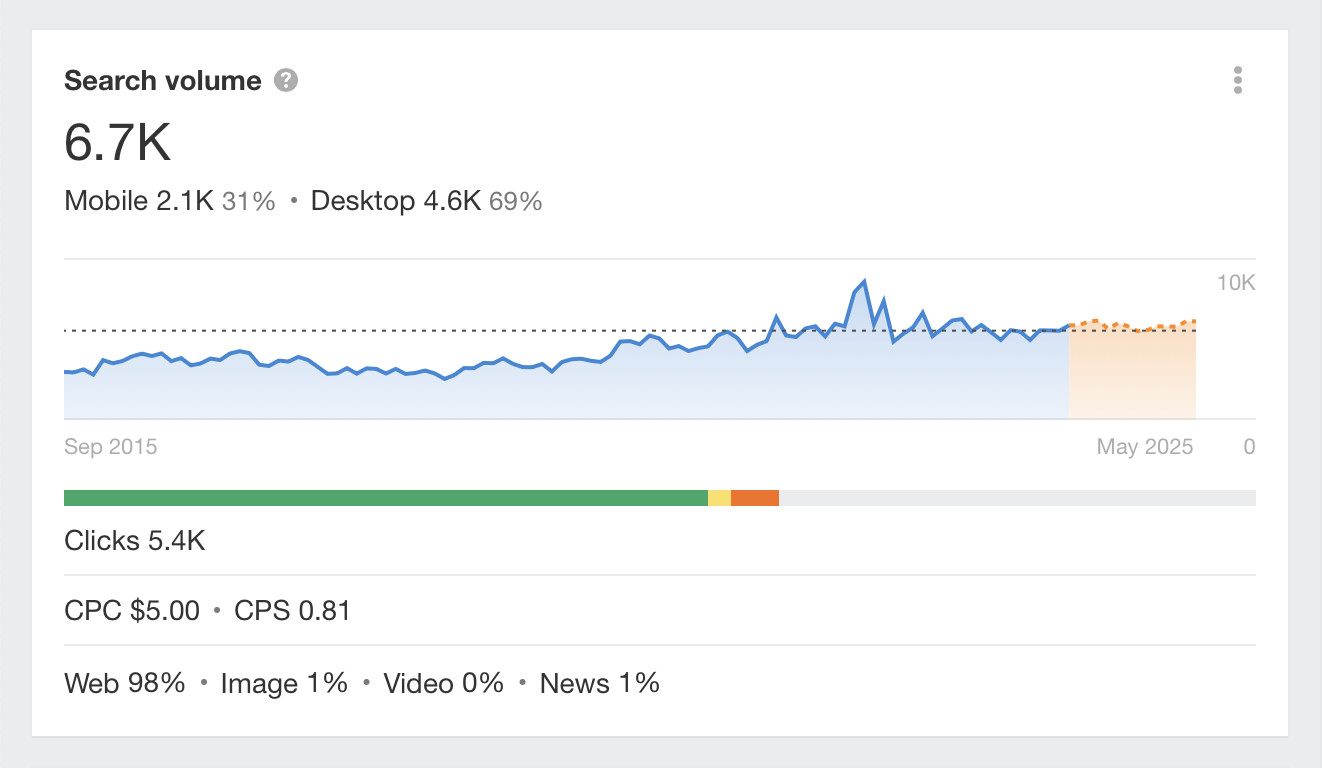
Of course, we’ll never know exactly how Google is weighting its algorithm, but it seems clear that link building is still a popular monthly search with a stable forecasted trend.
Should you follow? — No
It may be true that links are marginally less important than they were before, but if you look at any SERP using an SEO tool like Ahrefs, it’s clear that one of the most commonly shared signals of top-performing websites is links.
(And if you still aren’t convinced, please send your backlinks to Tim Soulo.)
To get started with link building, check out our link building guide on the blog and the Ahrefs’ Academy to learn how to build links for your business.
With more people than ever before consuming content in video format, video SEO is hard to ignore now.
Platforms like YouTube and TikTok are the homes of most video content, and searchers’ want to know how to do SEO for these specific platforms.
The trend for all three search terms looks very steady.
Video SEO:
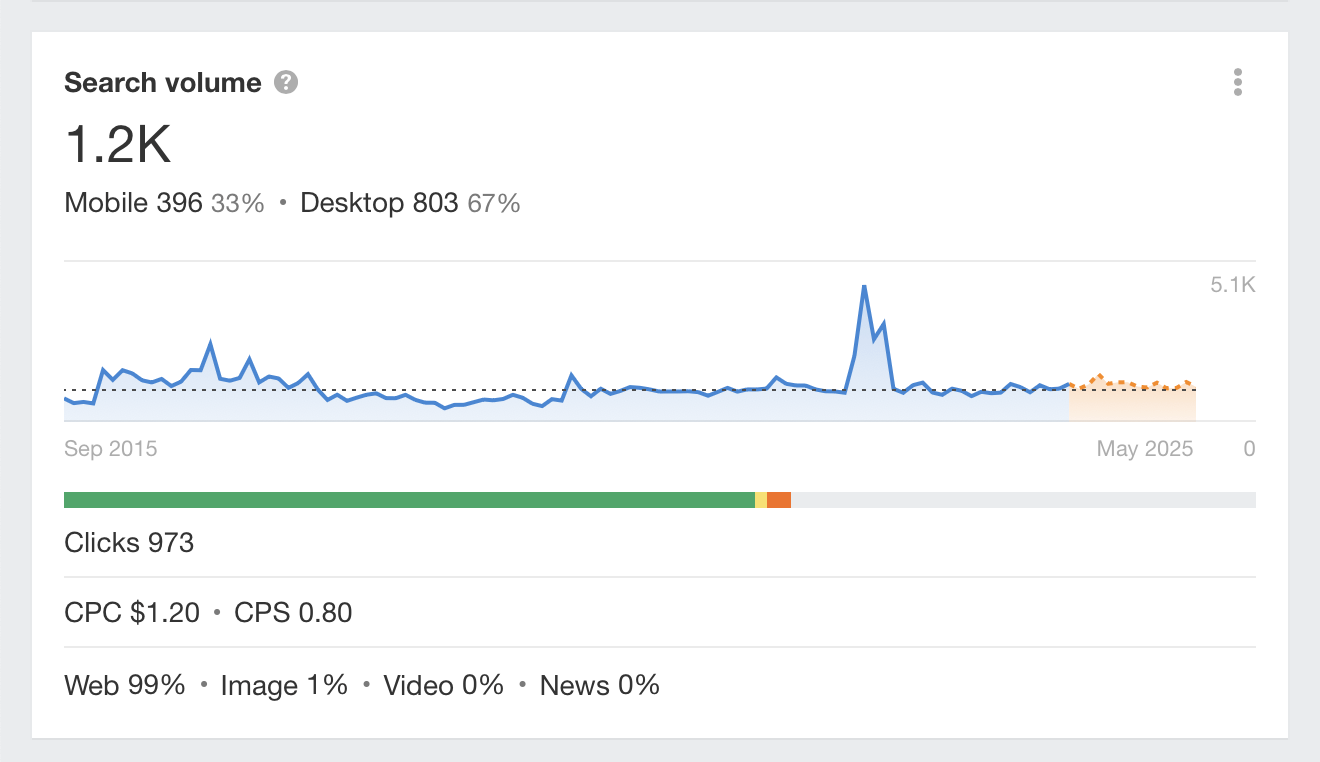
YouTube SEO:
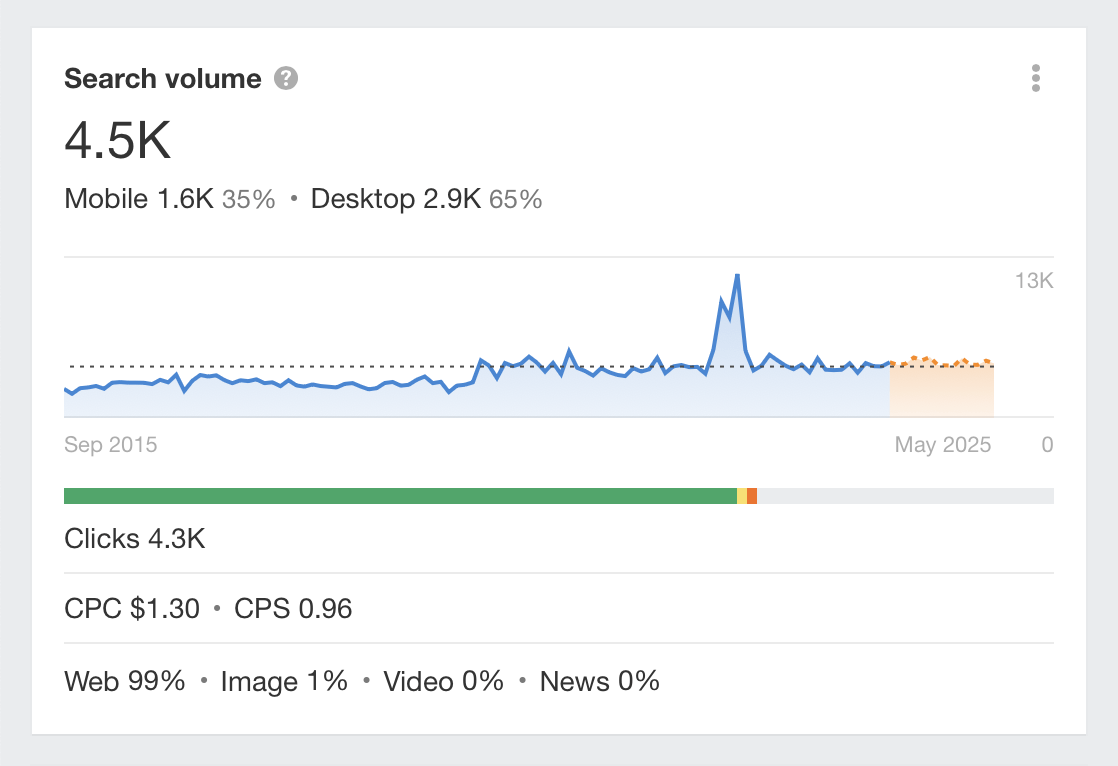
TikTok SEO:
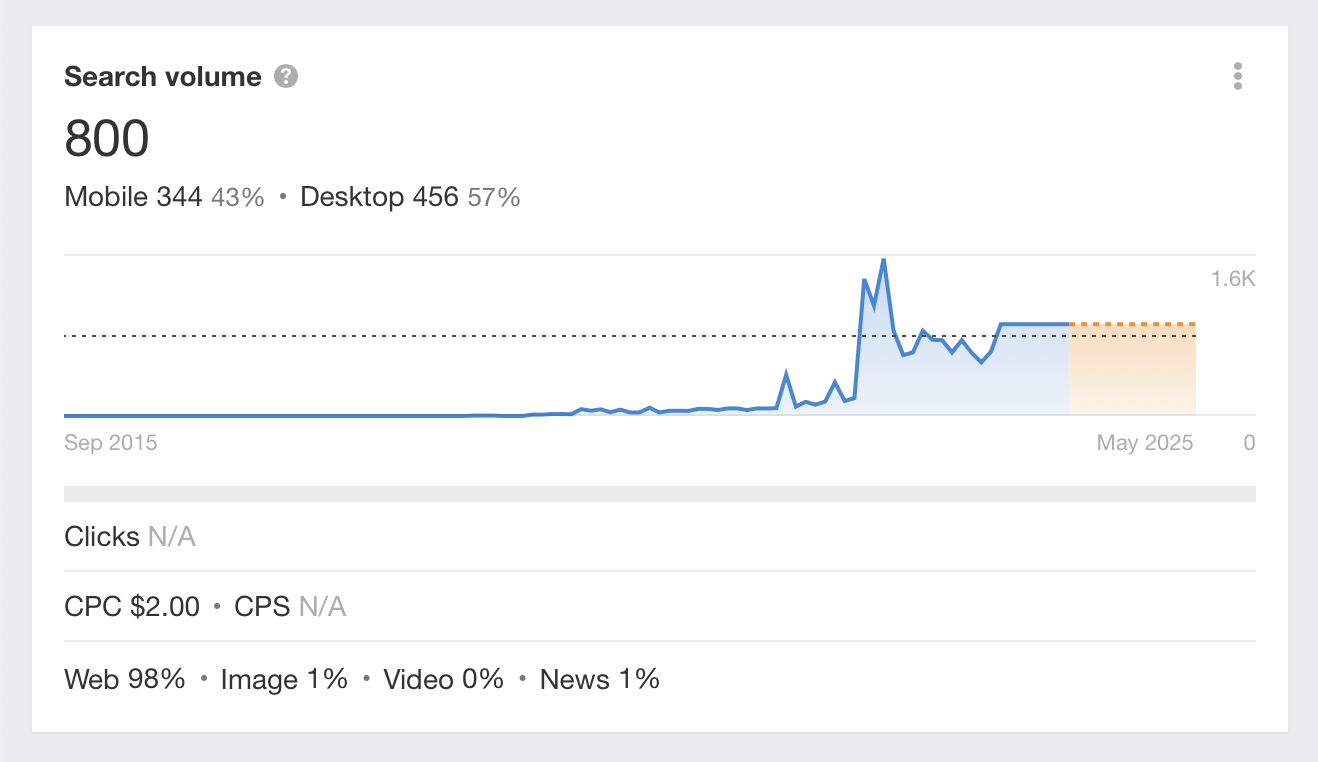
Both platforms have a steady forecasted trend.
Should you follow? — Yes
It should come as no surprise that creating video content can be a useful way to generate more interest in your website and business.
At Ahrefs, we take video content seriously, and we’ve built the most popular YouTube SEO channels on YouTube.
We also have the Ahrefs Academy, which helps people understand SEO and how to use our products.
As SEO trends go, this one is a whopper. Did you find this article using Google’s voice search?
Be honest…

Ha! Probably not. But despite this, every few years or so, voice search comes back into the foreground, and people once again buy into the hype. The latest example is following ChatGPT announcing their new voice capabilities.
Looking at this search trend using Ahrefs’ data it shows that although it has a reasonable amount of search volume, it’s been on a downward trend for a while.
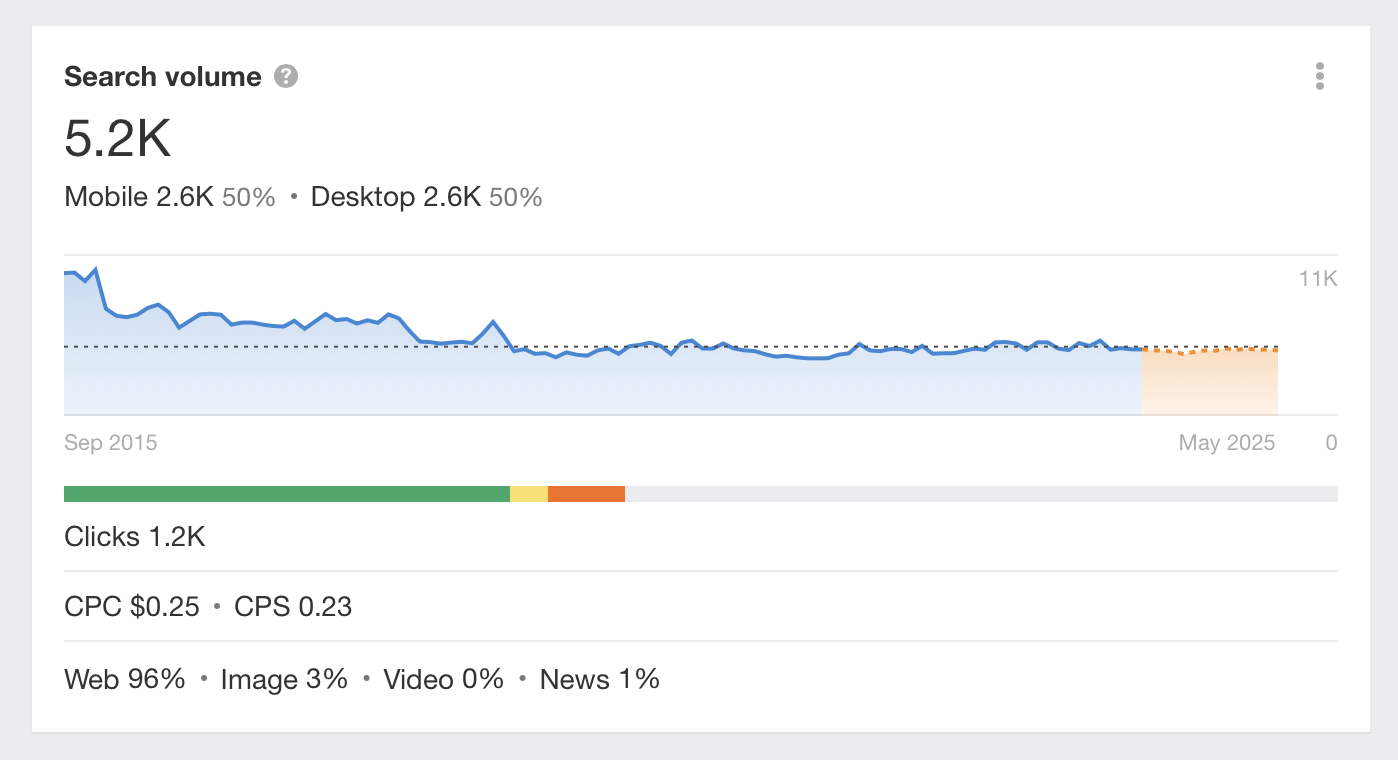
Should you follow? — No
Optimizing your business for voice search is not worth the effort. And even for this shop below that went the whole hog, it’s more of a PR stunt than an actual viable SEO strategy.

I even asked on LinkedIn in a quick straw poll to see how often people used voice search.
The result was fairly conclusive:
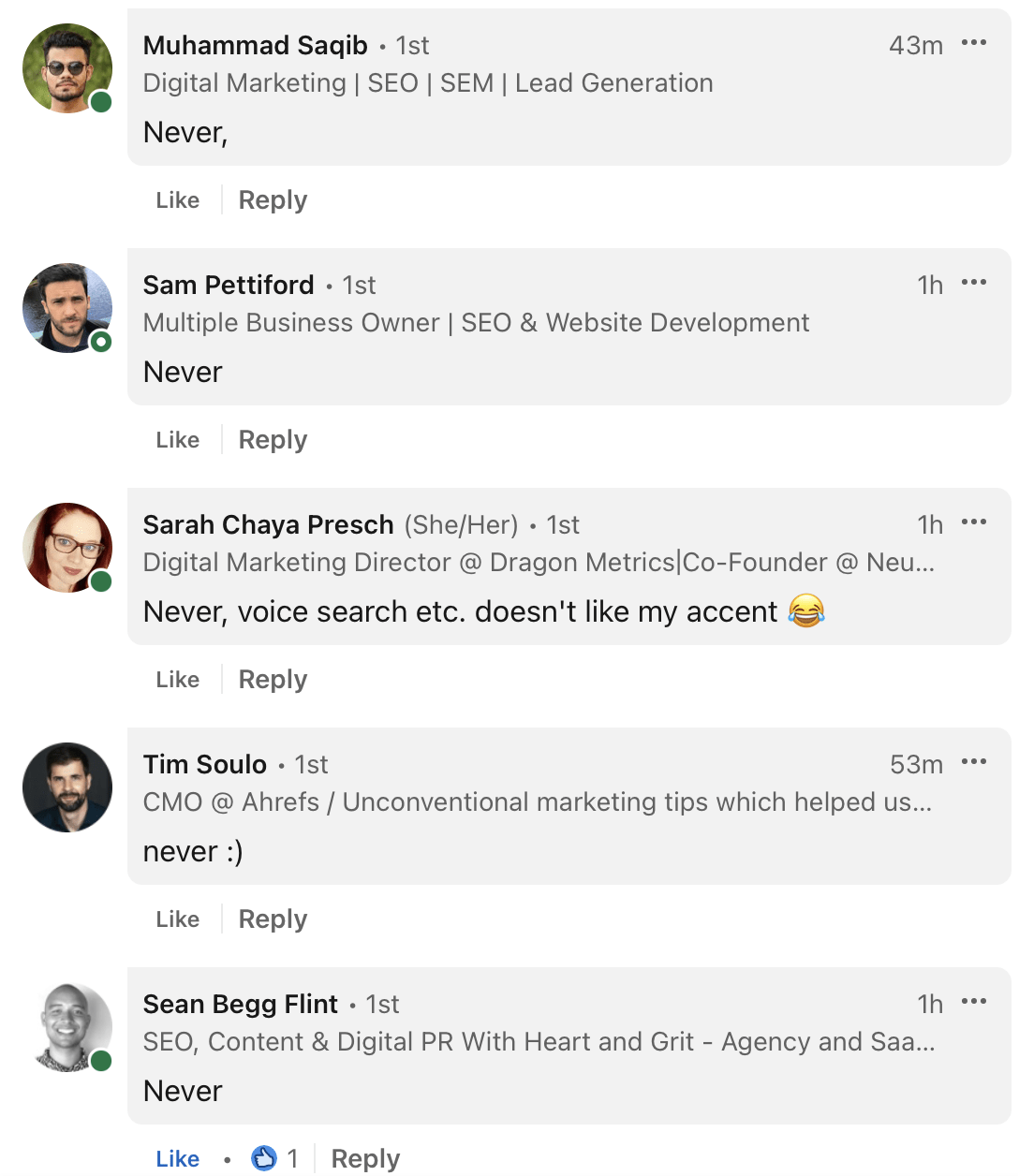
So in conclusion, I’d say there’s little point investing time and energy into an SEO trend that’s not straightforward to optimize for.
Core Web Vitals (CWVs) are metrics created by Google to measure the user experience of your website.
By improving them, you provide a better experience for your visitors, and Google may rank your website higher as a result.
Judging by the search trend data, interest in CWVs has plateaued a little, following the peak of inflated expectations.
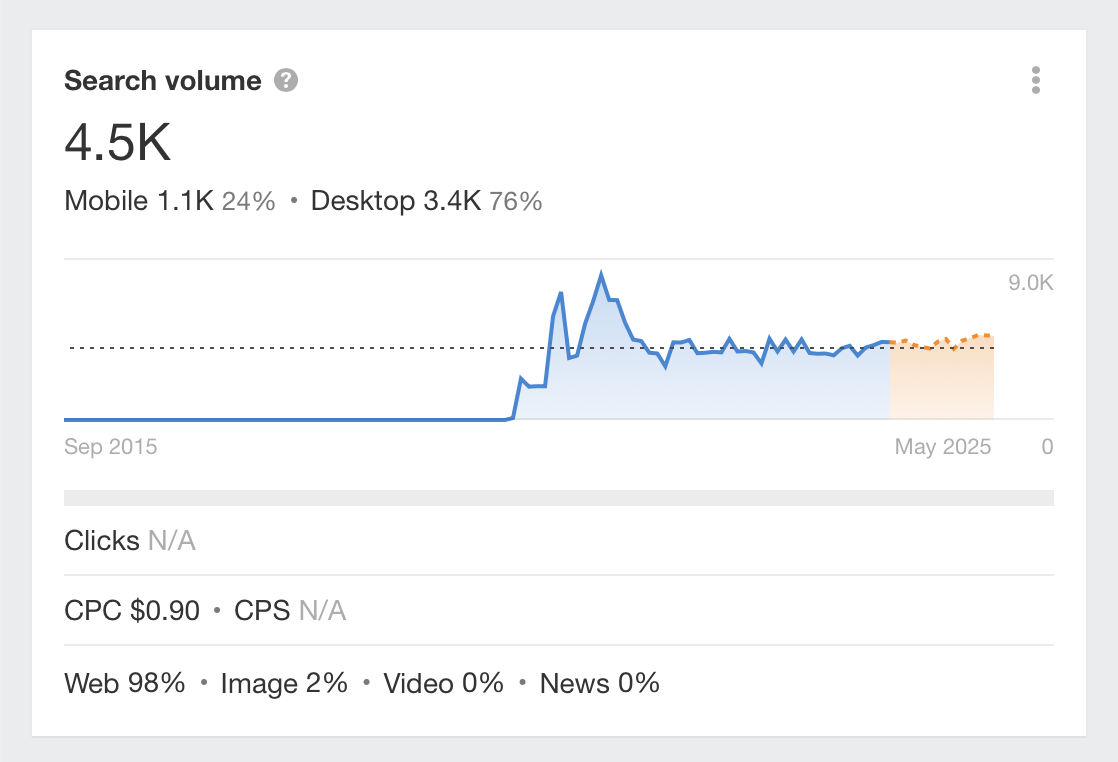
Should you follow? — It depends
Core Web Vitals are useful for benchmarking your website’s user experience metrics, and we have added the ability to pull them using our Site Audit tool.
But I think they can be overstated in importance sometimes, and it’s easy to get obsessed with getting the perfect scores.
I have said “it depends” here because I believe there is more value in improving Core Web Vitals with enterprise websites than with smaller websites.
If you want to get started with CWVs, check out our resources below.
SGE (Search Generative Experience) is Google’s answer to ChatGPT. It sits at the top of the search results and provides generative answers to your search queries.
This is what it looks like—in this example, it’s sitting above the featured snippet.
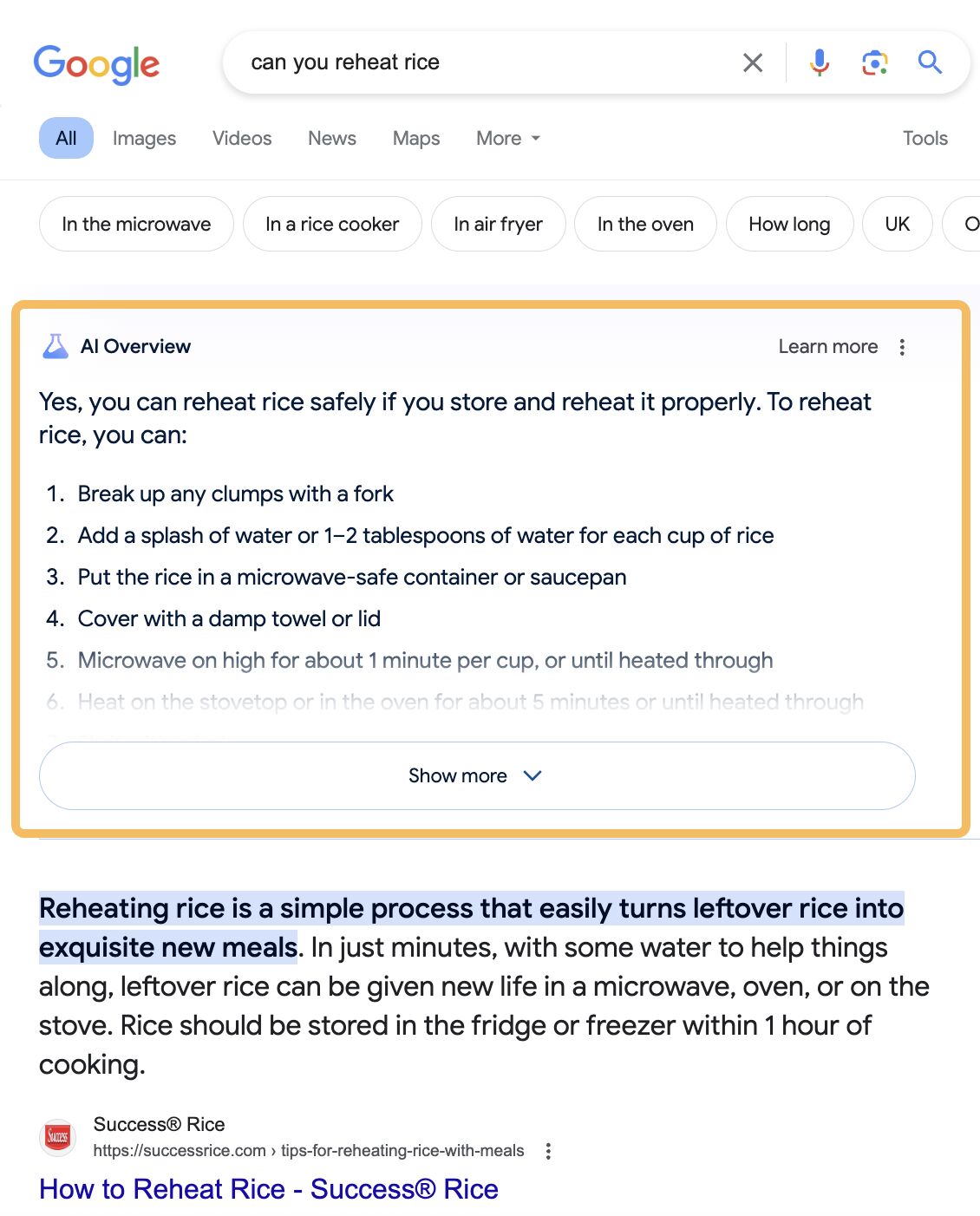
Using Ahrefs data, we can see interest in this topic is set to increase over the next few months.
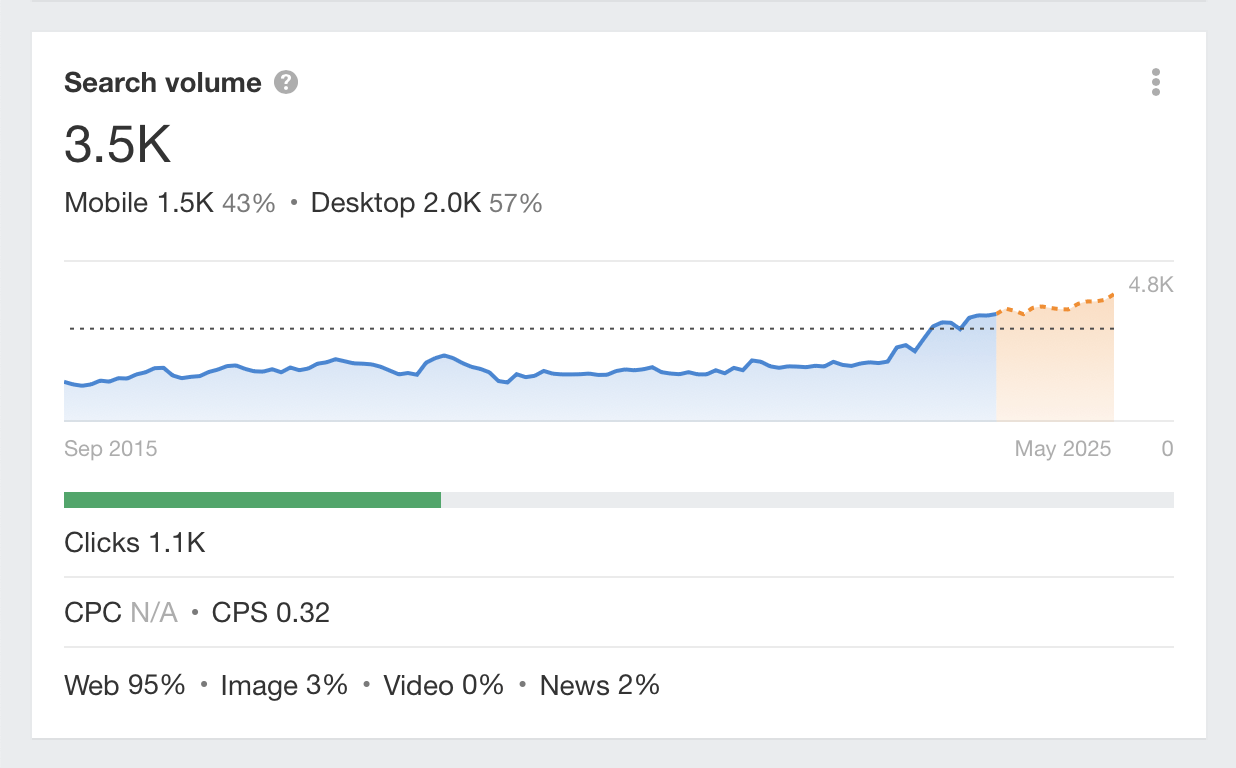

Should you follow? — Yes
SGE (Now AI Overview) is featured snippets on steroids. Google says there’s nothing special you have to do to appear in the AI overview apart from following their search essentials guidelines. Definitely one to watch, but the trend will likely switch from “SGE” to “AI Overviews”.
Since ChatGPT and other AI tools came on the scene, incorporating AI into traditional SEO processes has become second nature to many SEOs.
So why wouldn’t you use tools that help improve efficiency and save time?
Using Ahrefs’ data, we can see that searches for AI SEO are forecasted to be a relatively steady trend over the next few months.
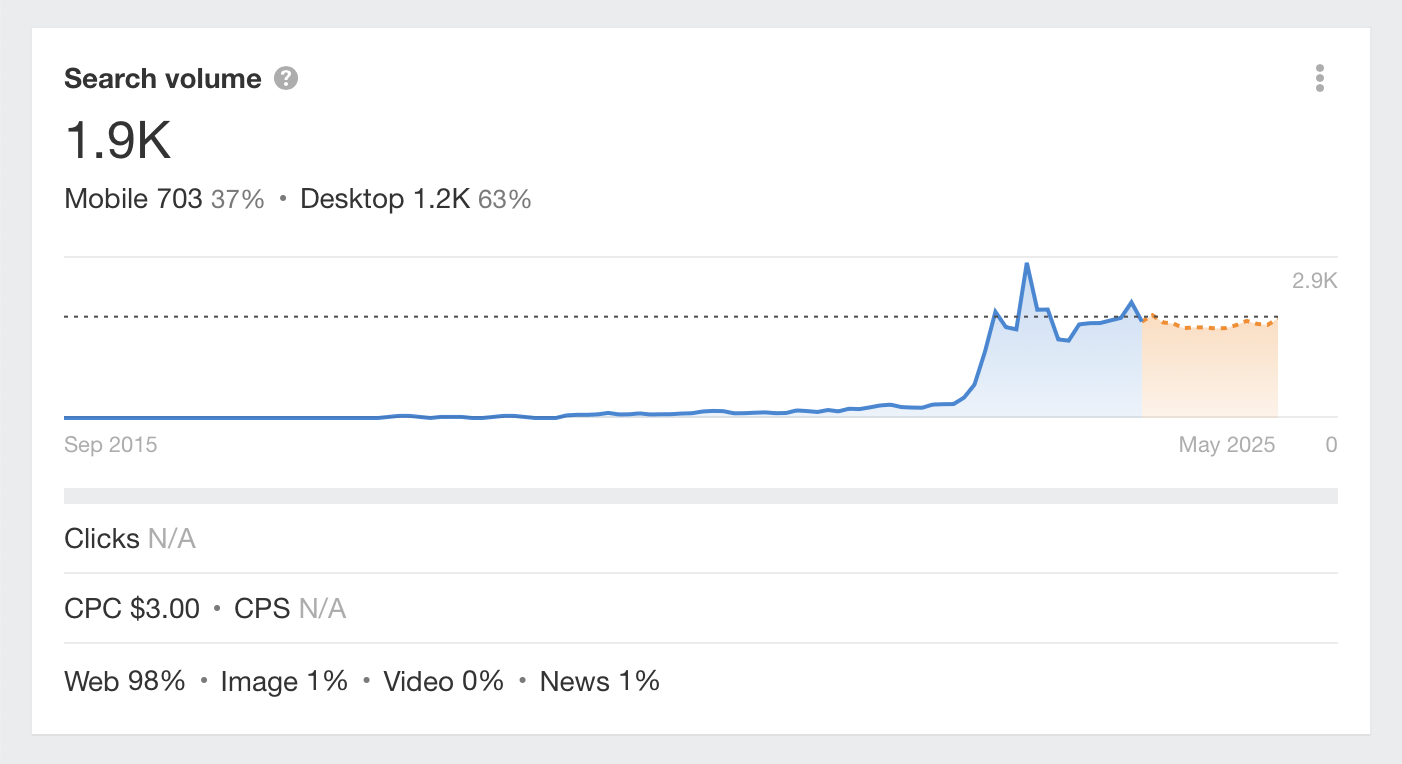
Should you follow? — Yes
I think it’s fair to say that AI isn’t going away anytime soon.
So, if you’re an AI Luddite, get skilled now in using AI for SEO to increase your efficiency.
If you’re not sure where to start, use our blog articles to help level up your AI SEO game:
EEAT stands for experience, expertise, authority, and trustworthiness. Google says that it uses EEAT signals to understand the credibility of pages on your website.
Looking at the search trend data, it looks as though this particular trend is forecasted to slowly increase in the next few months.
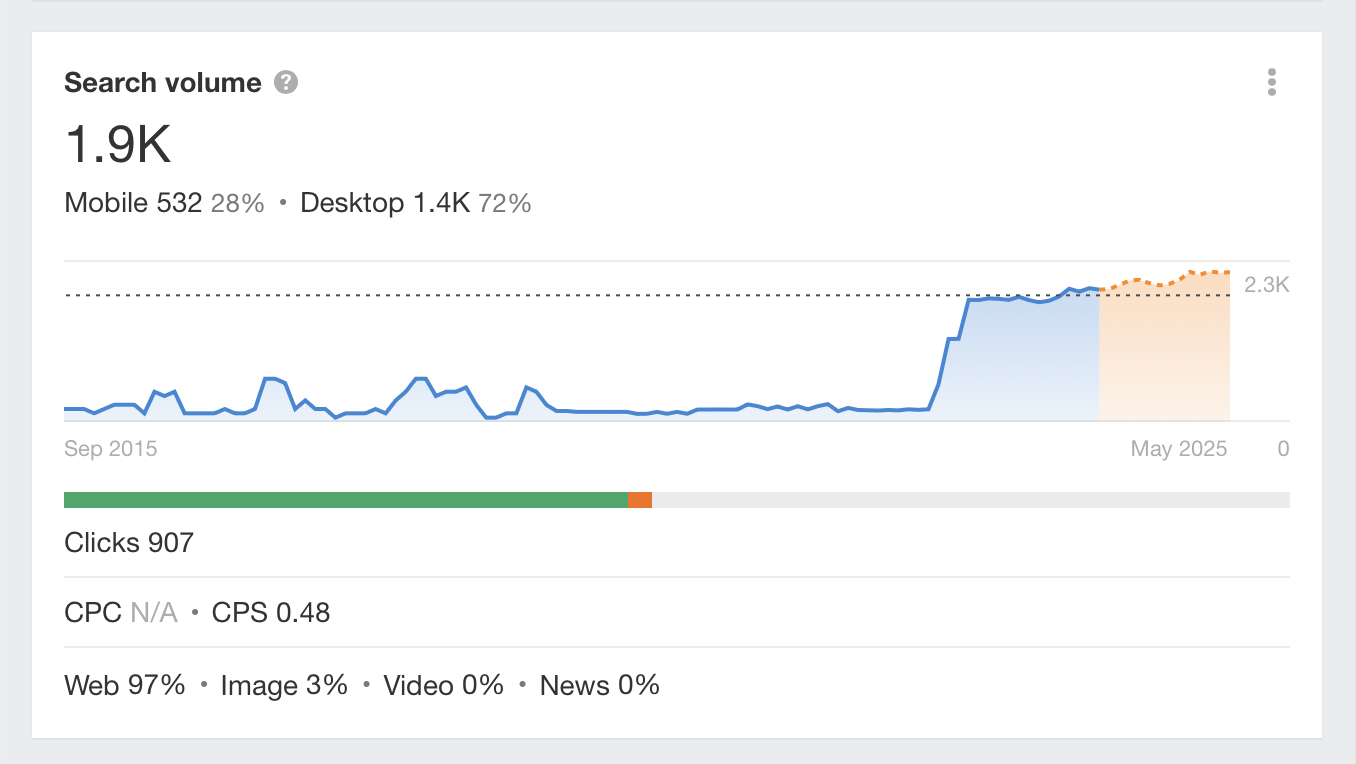
Should you follow? — It depends
There’s no shortage of websites that have completely ignored EEAT and have ranked well. But for most websites out there, I think it’s easiest to think of EEAT as managing your reputation, as James Brockbank has said:
Programmatic SEO is the process of creating keyword targeted pages at scale in a near or fully automated way.
SEOs have been creating pages at scale for many years, but this has become the latest way to describe this trend.
Using Ahrefs, we can see that the search term is forecasted to trend upward over the next few months. So, should you follow it?
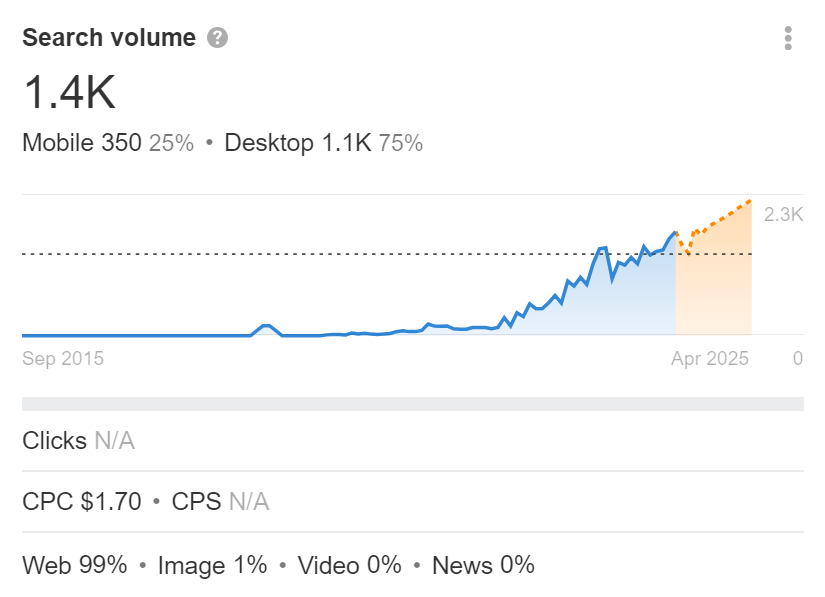
Should you follow? — It depends
Programmatic SEO done right can be a valuable asset for your business. But done poorly, it can appear low quality and spammy and negatively impact your brand’s reputation.
Google’s John Mueller went as far as to say that programmatic SEO can sometimes be a “fancy banner for spam.”
On the Ahrefs’ blog, our Director of Content Marketing, Ryan Law has written about how big companies like Wise and Zapier are using programmatic SEO successfully as part of their SEO strategy—in short, programmatic SEO can be really useful for established websites to create a consistent experience across a certain topic.
And, even at Ahrefs, we’ve dabbled in using programmatic SEO to create pages like our /seo/for/ pages—with favorable results so far.
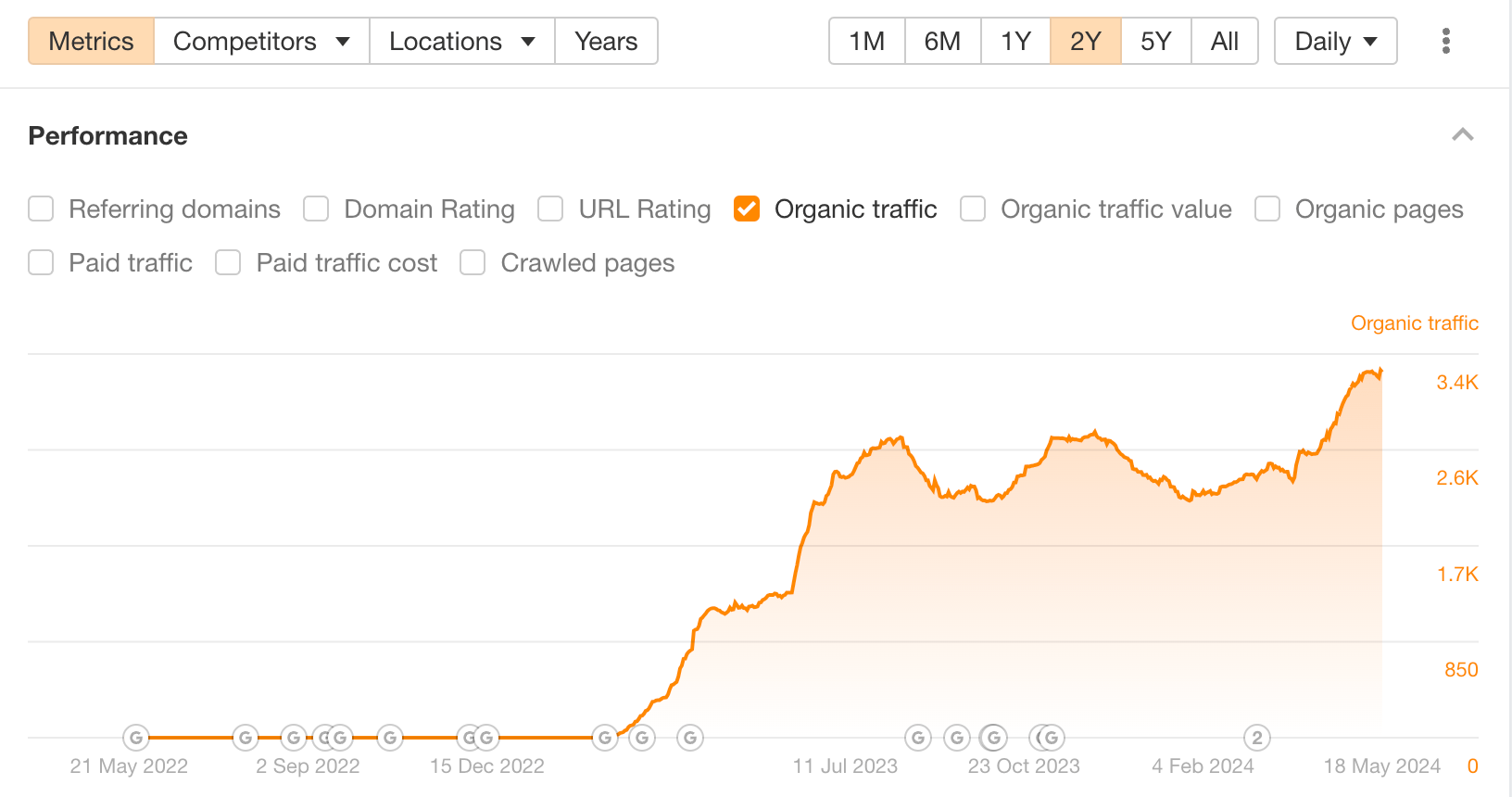
So, before you invest time and money into your next programmatic SEO project, ensure that you’ve researched it properly using tools like Keywords Explorer to identify keyword patterns you can use.
Accelerated Mobile Pages (AMP) is a framework developed by Google to improve the performance and user experience of web pages on mobile devices. It’s been fairly controversial with SEOs to say the least.
Most famously, Barry Adams declared that “Google AMP can go to hell,” but even after that, it still took a hell of a long while to watch the slow-motion death of AMP—and it’s not even over yet.
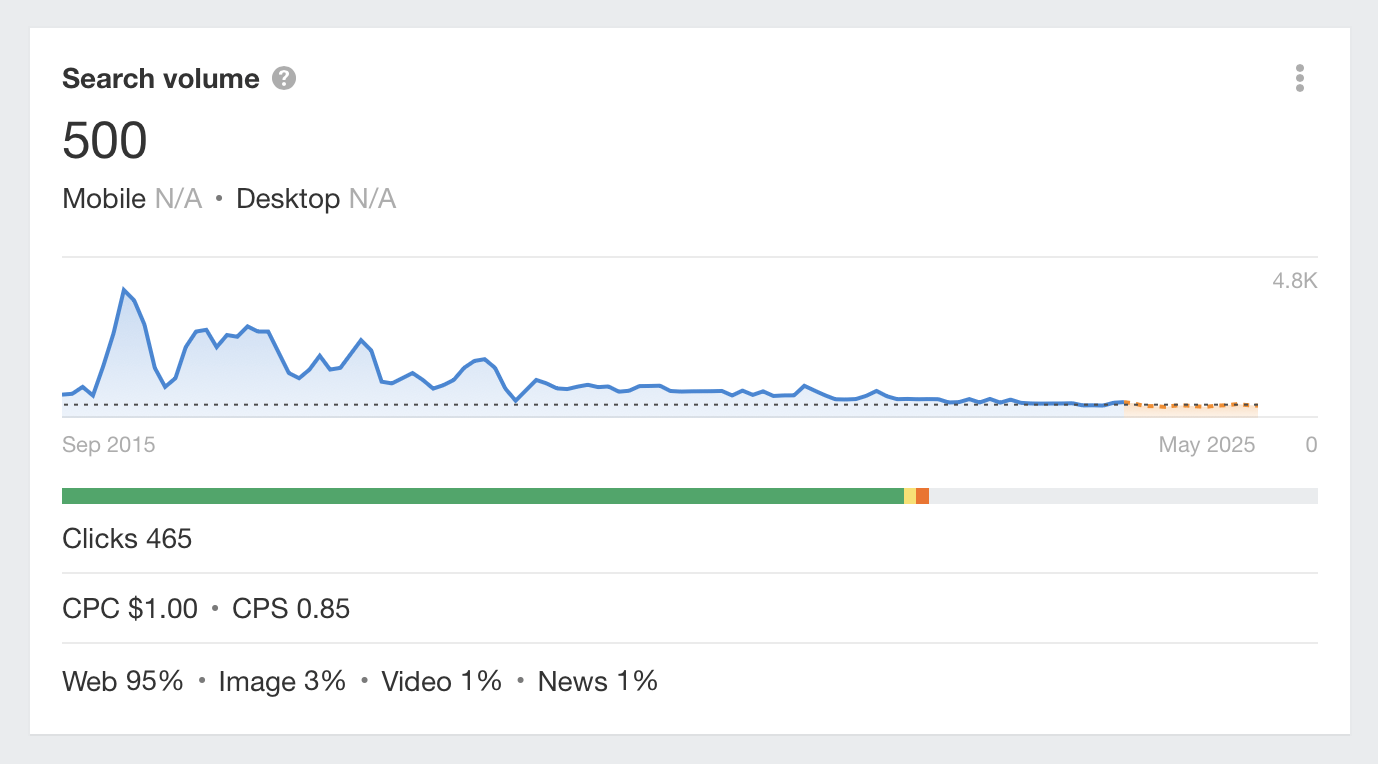
Should you follow? — No
In my opinion, AMP has had its day a long time ago.
And if you need any more proof, even the friendly team at Wix has recently decided to “kill it with fire.”
Information gain is Google’s patented way to assign a score to your content that determines how unique it is compared to other content on that topic.
The easiest way to provide information gain is to write about your personal experience and bring your own unique perspective to your writing
Ahrefs’ data shows that this trend, although often discussed on social media, is barely on the radar in terms of Search volume. So, should you follow it?
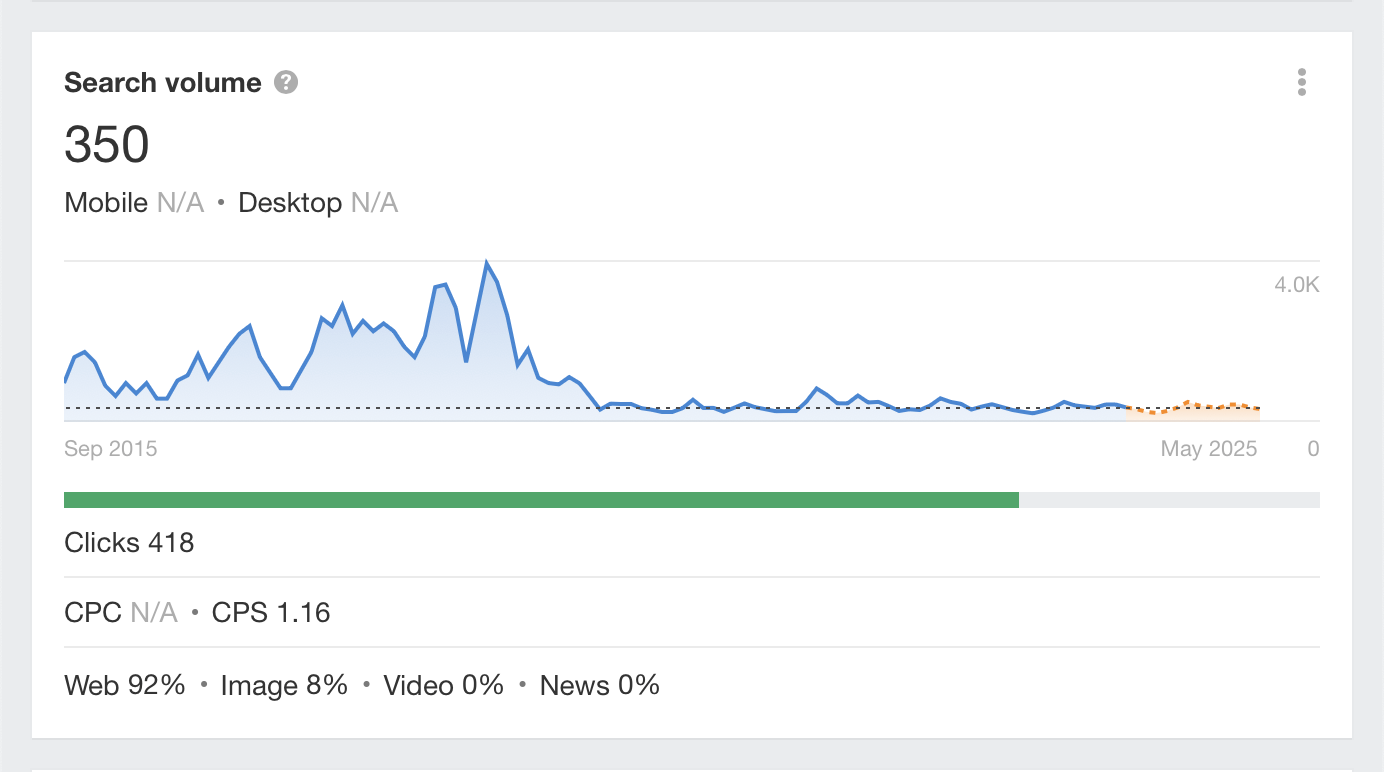
Should you follow? — Yes
Ok, I know what you’re thinking. Why follow a trend that’s on a decline? The reason is that the term “information gain” was used outside of SEO.
At Ahrefs’ we’ve spent a lot of time revamping our content process to provide more unique value for our readers that separates us from our competitor’s content.
Whenever we create content, we try to provide extra value for our readers by:
- Running surveys
- Conducting data studies
- Sourcing expert quotes
- Creating unique illustrations and diagrams to break down complex concepts
- Integrating video content into our written content
Going the extra mile with your content is no easy task—but is it worth it? The main reason we do it is to create a better experience and lasting impression for people using the Ahrefs website. We believe that this is what drives sales and builds our brand.
Based on a recent interview with Sundar Pichai, this challenge seems to be top of their minds at the moment:
“How do you reward originality, creativity, and independent voice at whatever scale at which you’re able to and give a chance for that to thrive in this content ecosystem we create?
That’s what I think about. That’s what the Search team thinks about.”
Final thoughts
Understanding which SEO trends are worth your time and effort may seem like a bit of a gamble without data to back it up.
However, armed with Ahrefs’ search volume forecasting feature, you can get a better idea of the longer-term prospects for any keyword and understand what stage of the SEO hype cycle the trend may be in. This allows you to make a more informed business decision about whether a trend is worth following or not.
Got questions? Ping me on X.



